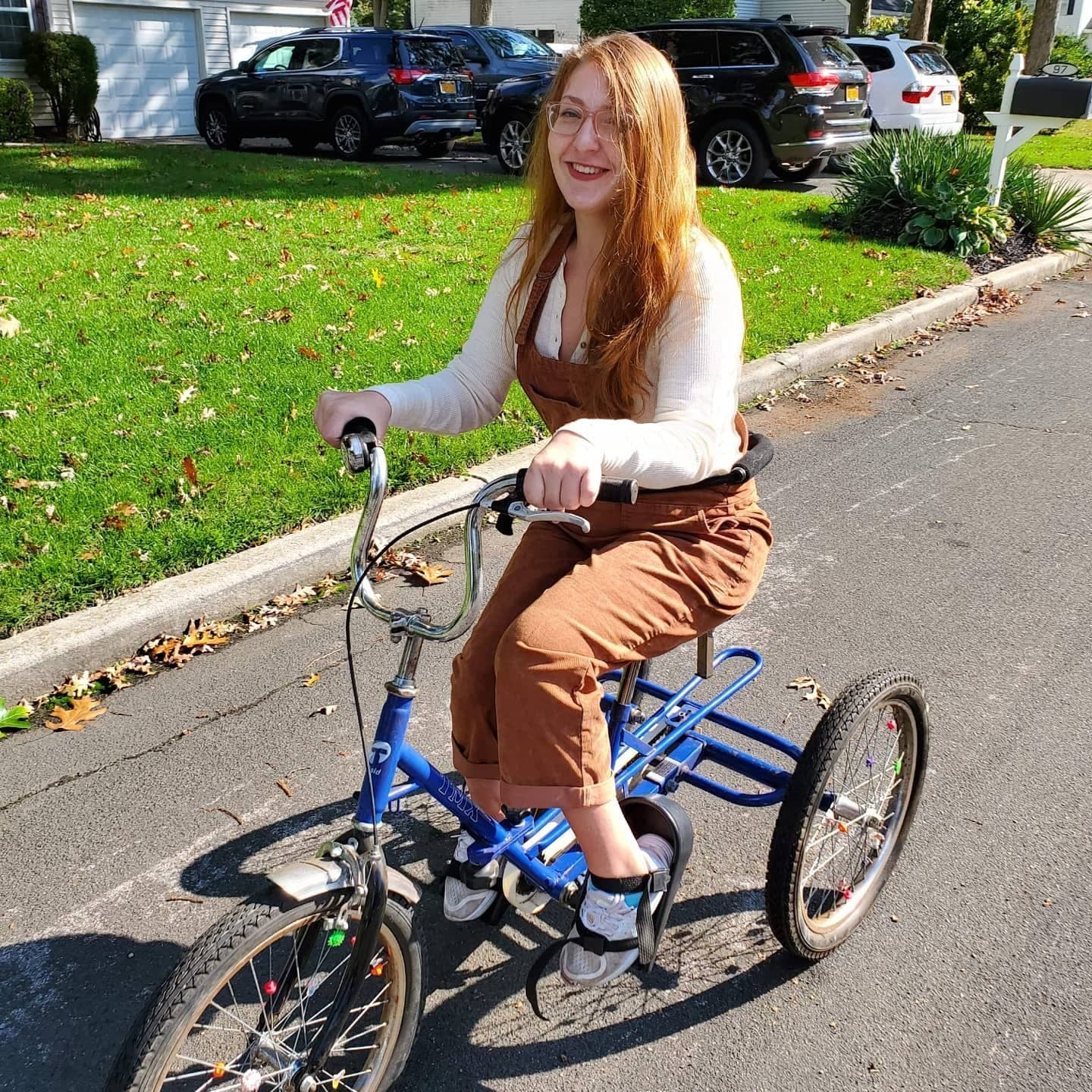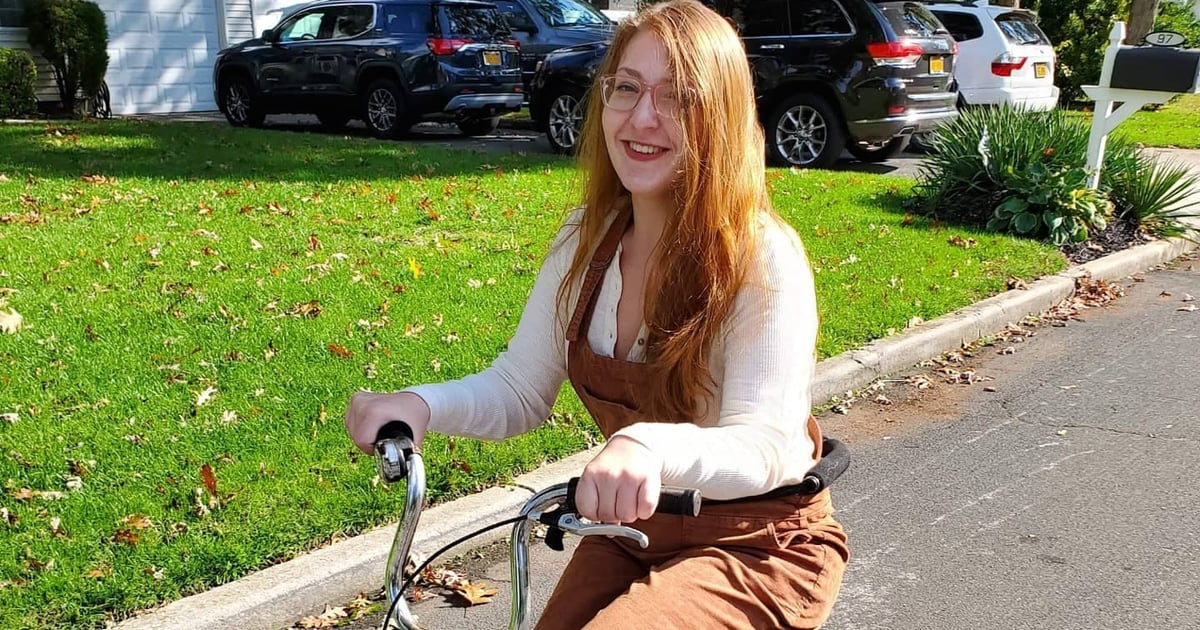
Warning: some things discussed in this personal essay may be triggering to those with a history of disordered eating.
I was 18 years old when I fully admitted to myself that I had an eating disorder. It wasn’t because I didn’t experience symptoms before then. I had been struggling with disordered behaviors since I was about 14, and I developed a disordered way of thinking about my body and food even before that. It also wasn’t because my eating disorder hadn’t affected other aspects of my life. I had already lost some of my longest friendships, been in toxic romantic relationships, and watched my once exemplary grades decline. The reason it took me years to admit I had an eating disorder is because I am physically disabled. In my mind, having one physical disability was enough. Girls like me didn’t get eating disorders. We couldn’t. I was praised for pushing my body to its limits, hailed an inspiration for simply walking. It was impossible for me not to internalize these messages.
Internalized ableism occurs when disabled people internalize stigmatizing messages in society, like the low expectations that are often placed on those with disabilities. These expectations usually present in two ways. Disabled people are made to feel that we shouldn’t go to work or school, or we’re called “inspirational” simply for existing.
In my mind, having one physical disability was enough. Girls like me didn’t get eating disorders.
The latter happened to me just a few weeks ago, when a woman I had never met approached my mom and I while we were out for a walk. She told me how “inspiring” I was and how she no longer had an excuse to quit after seeing me walk. Although I’m disabled, I’ve been able to walk since I was in preschool. I use a crutch, but I can walk. This woman didn’t know my history, yet she felt it was appropriate to comment. I was left speechless, humiliated even. To make matters worse, I was scared that I could have been exposed to a deadly virus by a maskless stranger in the midst of a pandemic.
Attitudes like hers are problematic for a number of reasons, one being that they often objectify disabled people in order to make nondisabled people feel better about their own bodies. For me, being hailed an inspiration put undue pressure on me to overachieve. I used it to justify years of over-exercising and under-eating. I felt that it was my duty as a disabled woman.
Over the years, I have tried (often fruitlessly) to develop a healthy relationship with exercise. In high school, I took up running. I would sprint the 100-meter dash at the track. Increasing my speed became an obsession. I ran when I was sick, when I was injured, and in bad weather. I felt as though I was in a trance. My day would be ruined if it took me a second longer to reach the finish line. It determined how much I ate and whether or not I was permitted to see my friends.
Even when I understood that I had a problem, I struggled to find my place within the recovery and body acceptance spaces. On social media, people in recovery are encouraged to focus on what our bodies can do, rather than how they look. We’re told to shift our focus from being as small as possible to being as strong as possible. While these concepts are well-intentioned, they exclude disabled people. I cannot lift more than eight pounds, while other women my age can bench press their own weight. I cannot even shower or dress myself without assistance. I cannot climb mountains or traverse rivers or run marathons. My bladder fails me more often than I’d like to admit, and I trip over my own two feet on a steady, biweekly basis.
I’m not the mainstream feminist’s ideal of anything you can do I can do bleeding. And yet I deserve to love my body. At 23, I still feel the sting of recovery spaces not being created with me in mind. I don’t want to be an exception; I don’t want the rules to be bent for my sake just this once. I want the mainstream messages of feminism and body acceptance to change. I no longer want to feel like an uninvited guest in spaces where I belong. I have an eating disorder — recovery spaces should be as welcoming to me as they are to white, cisgender, able-bodied women.
I try to remind myself that my body does not define me — not what it looks like, nor what it can do.
For one of my writing classes, I sought to write about eating disorders in visibly disabled women. As I typed the keywords of my search into an academic database, it became evident that, while studies have been conducted on eating disorders and race, eating disorders in the LGBTQ+ community, and even eating disorders and religion, not many researchers have even considered how physical disabilities may trigger the development of an eating disorder. However, the few studies I could find revealed that I’m not an outlier.
In one study, in which researchers interviewed disabled students about body image, a woman with a muscular atrophy disorder said she believed the ideal woman looks like “someone who does a lot of aerobics and maximizes her muscles.” While this was just one person’s opinion, it reveals the pressure that disabled women feel to meet an impossible standard. Someone with muscular atrophy will likely never achieve the look of toned muscles. That’s not to say that they aren’t strong or can’t workout, but their bodies and workouts will differ from their able-bodied counterparts. This shouldn’t be viewed as inferior or inspirational. We must move past the illusion that having a healthy body image requires celebrating what one’s body can do.
I recently started riding a tricycle. I wanted to find an exercise that was challenging without obsessing over calories or progress. I love the feeling of gliding. When I’m riding and when I’m not, I try to remind myself that my body does not define me — not what it looks like, nor what it can do. I know that my body will change over time and clinging to any one aspect of it could eventually cause me harm. So, now my primary goal is to treat my body well. That means exercising in moderation, listening to my body, resting, and most importantly, accepting myself.
Image Source: Erica Mones
